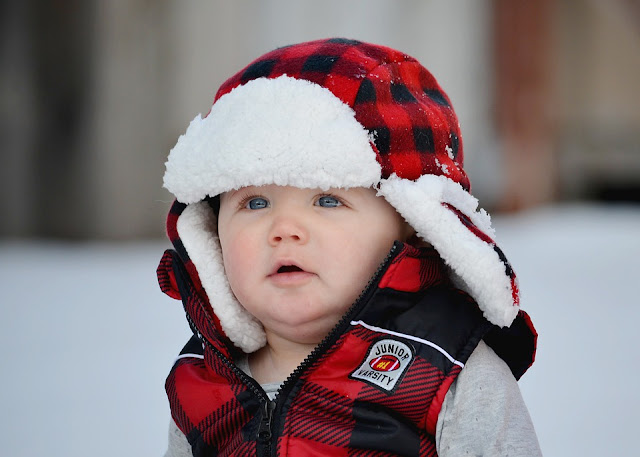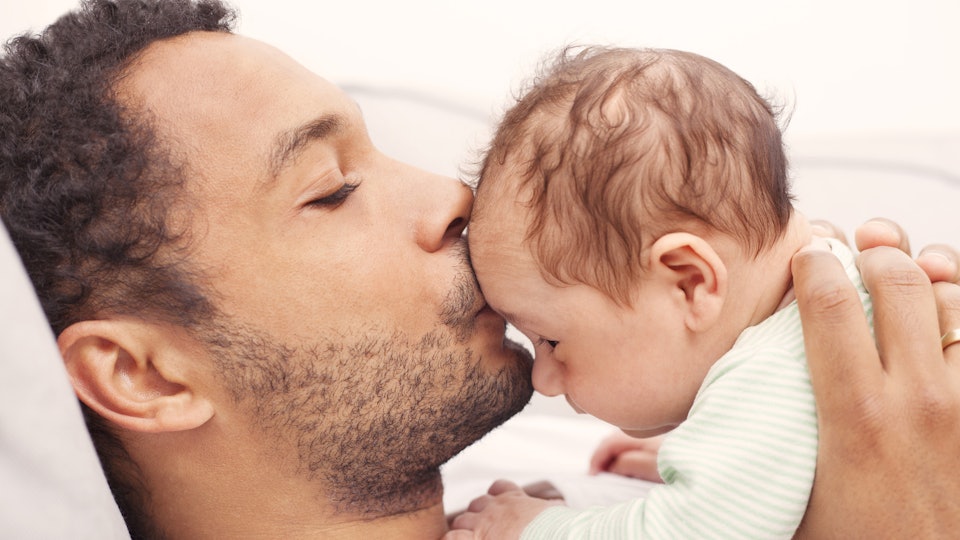Parent-to-parent advice on feeding, soothing, and more during baby's first days at home.
Breastfeeding
It's been six weeks since our daughter, Clementine, was born. She's finally sleeping better and going longer between feedings. She's also becoming more alert when she's awake. My husband and I, on the other hand, feel like we've been hit by a truck. I'm amazed that we've muddled through. Here are tips from seasoned parents and baby experts to make your first month easier.
Hints for Nursing
Babies eat and eat and eat. Although nature has done a pretty good job of providing you and your baby with the right equipment, in the beginning it's almost guaranteed to be harder than you expected. From sore nipples to tough latch-ons, nursing can seem overwhelming.
1. Women who seek help have a higher success rate. "Think of ways to ensure success before you even give birth," suggests Stacey Brosnan, a lactation consultant in New York City. Talk with friends who had a good nursing experience, ask baby's pediatrician for a lactation consultant's number, or attend a La Leche League (nursing support group) meeting (see laleche.org to find one).
2. Use hospital resources. Kira Sexton, a Brooklyn, New York, mom, says, "I learned everything I could about breastfeeding before I left the hospital." Ask if there's a nursing class or a lactation consultant on staff. Push the nurse-call button each time you're ready to feed the baby, and ask a nurse to spot you and offer advice.
3. Prepare. At home, you'll want to drop everything to feed the baby the moment she cries for you. But Heather O'Donnell, a mom in New York City, suggests taking care of yourself first. "Get a glass of water and a book or magazine to read." And, because breastfeeding can take a while, she says, "pee first!"
4. Try a warm compress if your breasts are engorged or you have blocked ducts. A heating pad or a warm, wet washcloth works, but a flax pillow (often sold with natural beauty products) is even better. "Heat it in the microwave, and conform it to your breast," says Laura Kriska, a mom in Brooklyn, New York.
5. Heat helps the milk flow, but if your breasts are sore after nursing, try a cold pack. Amy Hooker, a San Diego mom, says, "A bag of frozen peas worked really well for me."
6. If you want baby to eventually take a bottle, introduce it after breastfeeding is established but before the 3-month mark. Many experts say 6 to 8 weeks is good, but "we started each of our kids on one bottle a day at 3 weeks," says Jill Sizemore, a mom in Pendleton, Indiana.
Sleeping
If your infant isn't eating, he's probably sleeping. Newborns log as many as 16 hours of sleep a day but only in short bursts. The result: You'll feel on constant alert and more exhausted than you ever thought possible. Even the best of us can come to resent the severe sleep deprivation.
7. Stop obsessing about being tired. There's only one goal right now: Care for your baby. "You're not going to get a full night's sleep, so you can either be tired and angry or just tired," says Vicki Lansky, author of Getting Your Child to Sleep...and Back to Sleep (Book Peddlers). "Just tired is easier."
8. Take shifts. One night it's Mom's turn to rock the cranky baby, the next it's Dad's turn. Amy Reichardt and her husband, Richard, parents in Denver, worked out a system for the weekends, when Richard was off from work. "I'd be up with the baby at night but got to sleep in. Richard did all the morning care, then got to nap later."
9. The old adage "Sleep when your baby sleeps" really is the best advice. "Take naps together and go to bed early," says Sarah Clark, a mom in Washington, D.C.
10. What if your infant has trouble sleeping? Do whatever it takes: Nurse or rock baby to sleep; let your newborn fall asleep on your chest or in the car seat. "Don't worry about bad habits yet. It's about survival -- yours!" says Jean Farnham, a Los Angeles mom.
Soothing
It's often hard to decipher exactly what baby wants in the first murky weeks. You'll learn, of course, by trial and error.
11. "The key to soothing fussy infants is to mimic the womb. Swaddling, shushing, and swinging, as well as allowing babies to suck and holding them on their sides, may trigger a calming reflex," says Harvey Karp, MD, creator of The Happiest Baby on the Block books, videos, and DVDs.
12. Play tunes. Forget the dubious theory that music makes a baby smarter, and concentrate on the fact that it's likely to calm him. "The Baby Einstein tapes saved us," says Kim Rich, a mom in Anchorage, Alaska.
13. Warm things up. Alexandra Komisaruk, a mom in Los Angeles, found that diaper changes triggered a meltdown. "I made warm wipes using paper towels and a pumpable thermos of warm water," she says. You can also buy an electric wipe warmer for a sensitive baby.
14. You'll need other tricks, too. "Doing deep knee bends and lunges while holding my daughter calmed her down," says Emily Earle, a mom in Brooklyn, New York. "And the upside was, I got my legs back in shape!"
15. Soak to soothe. If all else fails -- and baby's umbilical cord stub has fallen off -- try a warm bath together. "You'll relax, too, and a relaxed mommy can calm a baby," says Emily Franklin, a Boston mom.
Getting Dad Involved
Your husband, who helped you through your pregnancy, may seem at a loss now that baby's here. It's up to you, Mom, to hand the baby over and let Dad figure things out, just like you're doing.
16. Let him be. Many first-time dads hesitate to get involved for fear of doing something wrong and incurring the wrath of Mom. "Moms need to allow their husbands to make mistakes without criticizing them," says Armin Brott, author of The New Father: A Dad's Guide to the First Year (Abbeville Press).
17. Ask Dad to take time off from work -- after all the relatives leave. That's what Thad Calabrese, of Brooklyn, New York, did. "There was more for me to do, and I got some alone time with my son."
18. Divvy up duties. Mark DiStefano, a dad in Los Angeles, took over the cleaning and grocery shopping. "I also took Ben for a bit each afternoon so my wife could have a little time to herself."
19. Remember that Dad wants to do some fun stuff, too. "I used to take my shirt off and put the baby on my chest while we napped," say Bob Vonnegut, a dad in Islamorada, Florida. "I loved the rhythm of our hearts beating together."
Staying Sane
No matter how excited you are to be a mommy, the constant care an infant demands can drain you. Find ways to take care of yourself by lowering your expectations and stealing short breaks.
20. First, ignore unwanted or confusing advice. "In the end, you're the parents, so you decide what's best," says Julie Balis, a mom in Frankfort, Illinois.
21. "Forget about housework for the first couple of months," says Alison Mackonochie, author of 100 Tips for a Happy Baby (Barron's). "Concentrate on getting to know your baby. If anyone has anything to say about the dust piling up or the unwashed dishes, smile and hand them a duster or the dish detergent!"
22. Accept help from anyone who is nice -- or naive -- enough to offer. "If a neighbor wants to hold the baby while you shower, say yes!" says Jeanne Anzalone, a mom in Croton-on-Hudson, New York.
23. Got lots of people who want to help but don't know how? "Don't be afraid to tell people exactly what you need," says Abby Moskowitz, a Brooklyn mom. It's one of the few times in your life when you'll be able to order everyone around!
24. But don't give other people the small jobs. "Changing a diaper takes two minutes. You'll need others to do time-consuming work like cooking, sweeping floors, and buying diapers," says Catherine Park, a Cleveland mom.
25. Reconnect. To keep yourself from feeling detached from the world, Jacqueline Kelly, a mom in Lewisburg, Pennsylvania, suggests: "Get outside on your own, even for five minutes."
Out and About with Baby
26. Enlist backup. Make your first journey to a big, public place with a veteran mom. "Having my sister with me for support kept me from becoming flustered the first time I went shopping with my newborn," says Suzanne Zook, a mom in Denver.
27. If you're on your own, "stick to places likely to welcome a baby, such as story hour at a library or bookstore," suggests Christin Gauss, a mom in Fishers, Indiana.
28. "Keep your diaper bag packed," says Fran Bowen, a mom in Brooklyn. There's nothing worse than finally getting the baby ready, only to find that you're not.
29. Stash a spare. Holland Brown, a mom in Long Beach, California, always keeps a change of adult clothes in her diaper bag. "You don't want to get stuck walking around with an adorable baby but mustard-colored poop all over you."
30. Finally, embrace the chaos. "Keep your plans simple and be prepared to abandon them at any time," says Margi Weeks, a mom in Tarrytown, New York.
If nothing else, remember that everyone makes it through, and so will you. Soon enough you'll be rewarded with your baby's first smile, and that will help make up for all the initial craziness.
Source: https://www.parents.com/baby/care/newborn/your-newborn-30-tips-for-the-first-30-days/








